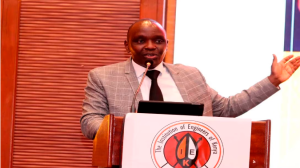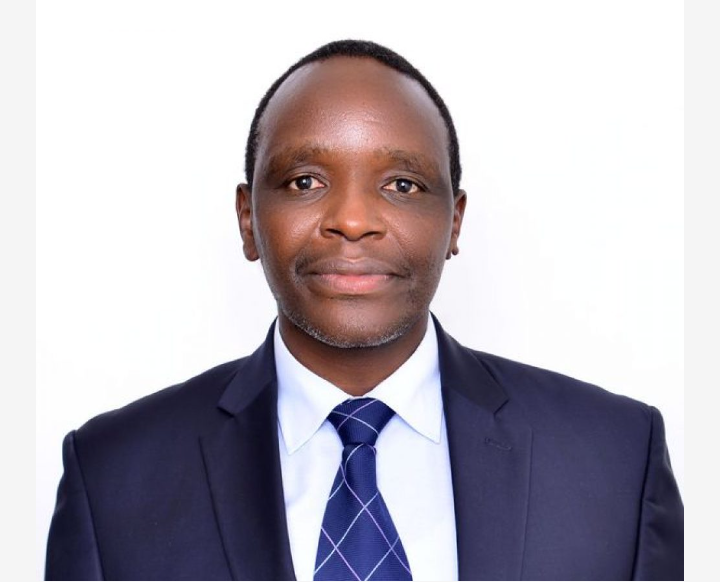The Kenya Highways Authority, KeNHA, is in the eye of a storm following a reconsideration by the President William Ruto regime of its Ksh160 billion Nairobi-Nakuru-Mau Summit road concession project. It’s the largest road concession project in Africa, backed by the French government and several influential international development institutions and is currently at risk due to massive corruption.
The saga has brought to the fore a poignant lesson on the tribulations that large infrastructure projects, whose implementation straddles different political regimes, are likely to be subjected to when a new government comes to power.
Press reports this week revealed the new administration has decided to put on hold what is billed as former President Uhuru Kenyatta’s most expensive road project. Procured by the Kenya National Highways Authority (KeNHA) in 2018 and awarded to the French EPC conglomerate, the Vinci Group, the project was negotiated under the private-public partnership (PPP) arrangement, which means that the French company is to build the road and assume ownership and control of the highway for 30 years, while the government will be responsible for collecting tolls from road users. A key condition precedent in the deal is that the government must establish a national tolls fund from where the money to pay the concessionaire will be sourced.
By far the most ambitious attempt by Kenya to deal with the perennial congestion on a key and critical part of the Northern Corridor, the project’s economic importance cannot be gainsaid. KeNHA statistics show that this section of the Northern Corridor carries an estimated 20,000 vehicles a day and traffic has been increasing at an annual rate of four per cent.
The scope of the project will include widening of the road, building a four-kilometre viaduct through Nakuru Town and building multiple interchanges along the 233-km highway.
As things stand, the project, to be funded from various sources, including equity by the Vinci Group, early revenues from sectional completion, senior debt from international financiers under the World Bank PRG cover, commercial loans guaranteed by US export credits agencies and local loans, has yet to reach financial closure.
Diplomatic relations at risk
A decision by President Ruto’s administration to halt the project will carry implications for diplomatic relations with the government of France, which fully backs the concession, seeing it as a good opportunity to allow its own contractors to play in a space that has for a long time been dominated by Chinese contractors. If it is halted, there will also be implications on relations with international development financial institutions backing the project.
What has made the stakes even higher is politics. Pundits are attributing the apparent dwindling fortunes of the project to loss of influence by political backers of the French company that was awarded the massive contract after braving a fierce battle with the Portuguese construction conglomerate, the Mota Engil Group.
Although the phenomenon is hardly articulated in public, the realities of politics of large infrastructure projects in Kenya often force international investors to tie up with politically-influential local middlemen and relatives of powerful State House insiders to help the foreigners navigate through complex webs of interests. A change in the tenant at State House can change fortunes for even the best-conceived project.
In the case of Nairobi-Mau Summit Highway, the political undercurrents during the procurement were so strong that the evaluation process became marred by controversy and allegations of infiltration by politically well-connected middlemen.
The French side was said to enjoy the support of a freelance influence agent closely linked to former President Uhuru Kenyatta’s State House, while the Mota Engil Group’s middleman and political backer was an influential son of a former minister in the Mwai Kibaki government.
Correspondence seen by The Weekly Review shows that it was the National Treasury’s PPP Unit – the body that primarily oversees transparency and accountability in the procurement of all PPP projects – that blew the whistle on the irregular manner in which the tender was awarded to the Vinci Group.
Documents show that during the detailed financial evaluation stages, it was discovered that the French Group had committed a major irregularity in computing income taxes in its bid.
It also emerged that KeNHA decided to shut its eyes to the irregularity flagged by the PPP Unit in the French Consortium’s bid on the grounds that the errors were minor, invoking provisions in the bid documents that allowed the contracting party to ignore and dismiss minor issues as computational errors.
Irregularities
The correspondence also shows that having decided to ignore the irregularities, KeNHA went ahead and asked Vinci to clarify and correct them. When the documents were presented to the PPP Review Committee, the oversight body flagged out the irregularities in the Vinci bid. In a letter to KeNHA dated November 13, 2018, Treasury principal secretary Dr Kamau Thugge said that his committee had arrived at the conclusion that the irregularities in the Vinci bid were not minor.

KeNHA Chairman Wangai Ndirangu
Without resolving them, he argued, the irregularities would put the Vinci Group in “negative cash-flows for a significant period of the concession, thus impairing the overall deliverability of the project”. Secondly, the PPP review committee said that KeNHA had made a big mistake by allowing Vinci to make a counter offer. According to the review committee, what KeNHA had done amounted to “a modification or addition to the bidder’s proposal”, which was unlawful.
Thirdly, Dr Thugge said that the review committee had found that “acceptance of a counter offer would confer on Vinci an unfair competitive advantage”, contrary to the law. Fourthly, the review committee found that “contrary to the position by KeNHA that the irregularities in tax computation were a minor issue”, tax matters are matters of law, not capable of waivers.
At the end of it all, the review committee ordered KeNHA to stop the procurement, reconvene the tender evaluation committee, and direct it to consider and accommodate its findings and recommendations. The oversight body directed KeNHA to submit the revised evaluation report to the Treasury within seven days.
However, with the support of powerful political backers, KeNHA stood its ground and awarded the contract to the Vinci Group, arguing that the difference between the offer by French Group and the Portuguese-led consortium was a minor technical disagreement over tax computation. A case filed at the procurement appeals tribunal by Mote Engil did not see the light of day. Critics charged that Kenya might have gone into a deal where risks and the quantum of contingent liabilities were opaque.
The most controversial part of the concession is the issue of “quarterly charge” – the amount which the concessionaire will be paid by the government on a quarterly basis.
According to the correspondence, the Vinci Group quoted a quarterly charge of Sh5.3 billion, while Mota Engil quoted Sh6.2 billion, implying – on the face of it – that the offer by the French was more competitive.
Yet, after the computation of taxes due to the government according to the formula that was provided by KRA, quarterly payments translated to Sh4.1 billion for Vinci and Sh3.9 billion for Mota Engil – implying that the Portuguese-led group had a more competitive offer. Apparently, the differences in the calculations arose in application of what is known in technical jargon as the thin capitalisation rule.
Because of the opaque way in which the deal was procured, experts maintain that Kenya’s largest highway tolling project was likely to end up in an unstable concession that will require constant renegotiation as risks not flashed out and settled during the procurement and negotiations stages happen in the future.
Although the veracity or not of the press reports about a decision by President Ruto’s new administration to put the project on hold remains an open ended question, interviews conducted by The Weekly Review this week with insiders at both the Kenya National Highway Authority and the National Treasury’s Public Private Partnership (PPP) Directorate – the two entities driving the project – confirmed that influential voices in President Ruto’s administration have raised several concerns about the viability of the project.
There are concerns about affordability to the road user with critics of the project in the new administration arguing that the road toll proposed will make it too expensive for road users. There are also concerns that since what is proposed is an open access toll system, road users who do not have the money will not have an alternative route to use.
In a conversation with The Weekly Review, an engineer that has been involved in the transaction and a senior official within the new administration argued that a road concession on the critical Nairobi-Nakuru-Mau Summit transport corridor was not the most appropriate for Kenya and that what the corridor needs a new road is built on a green field basis. There are also concerns that the project has been negotiated in a manner where the government will be taking too many risks.


